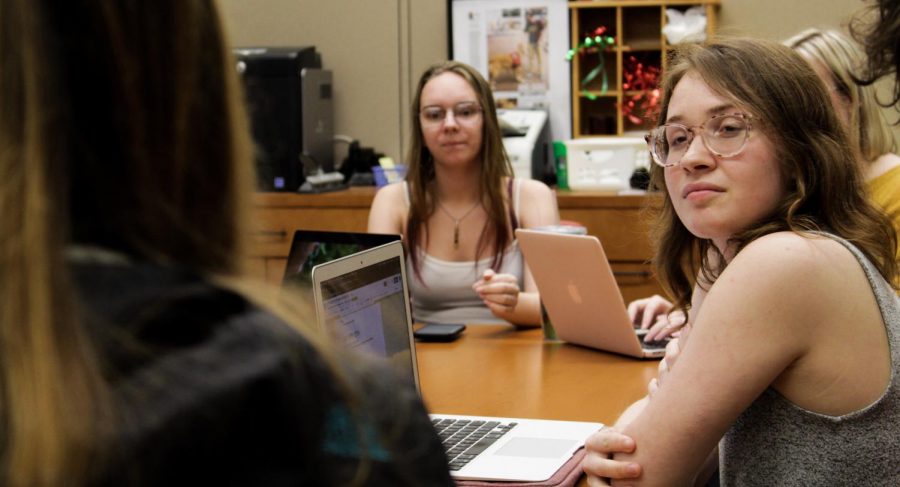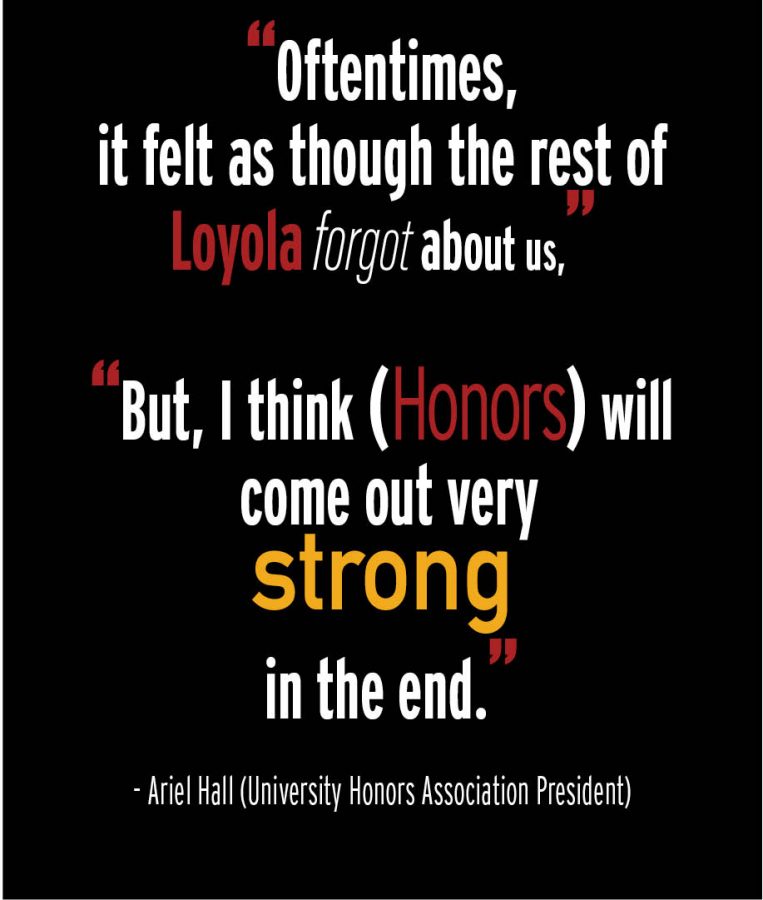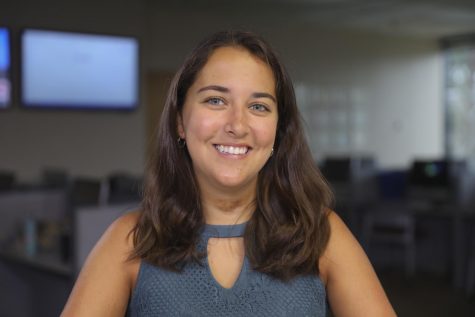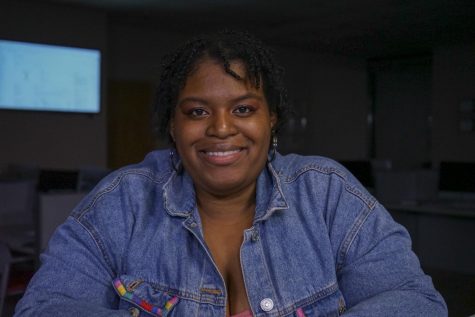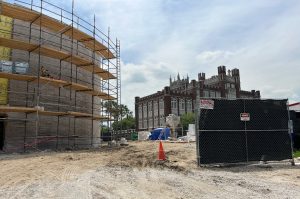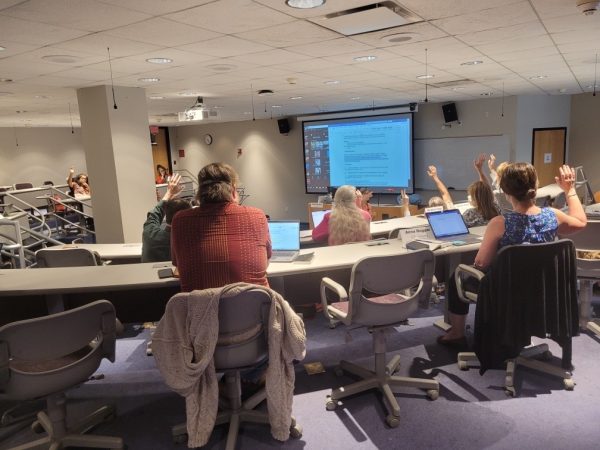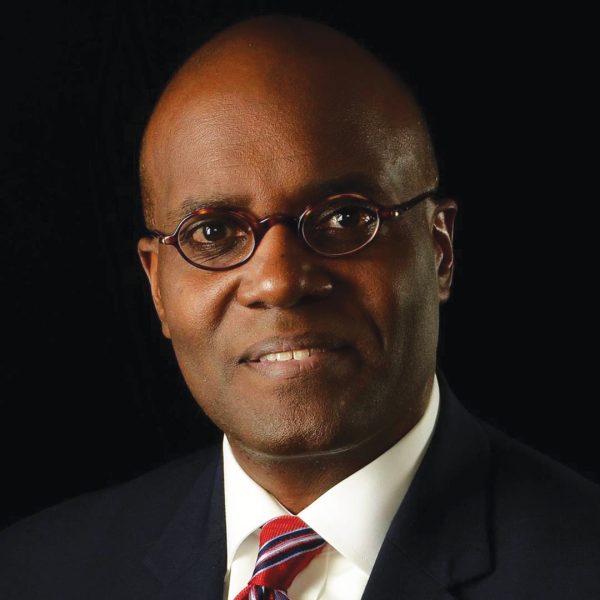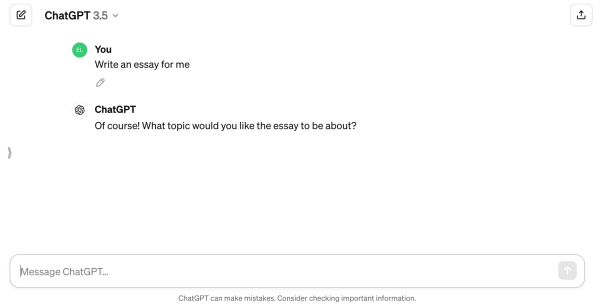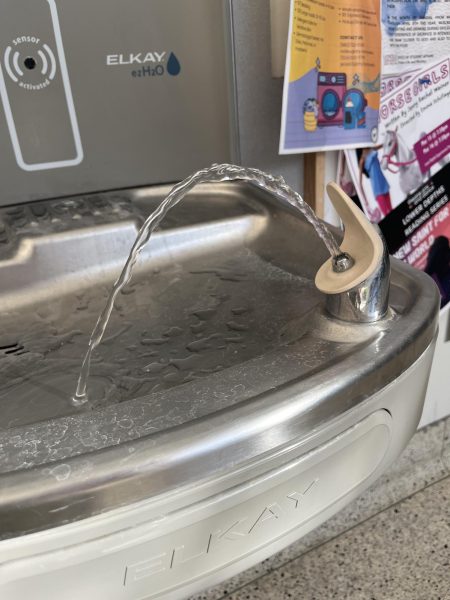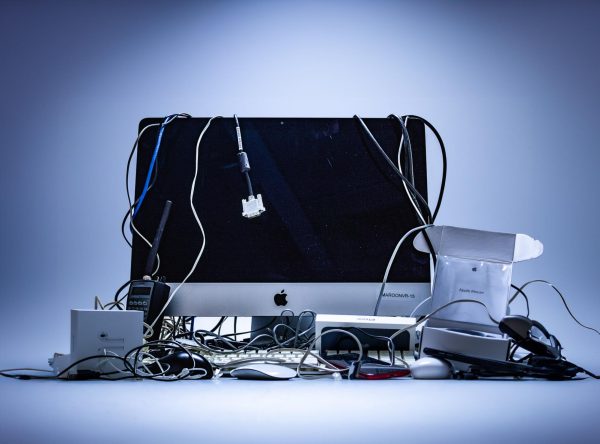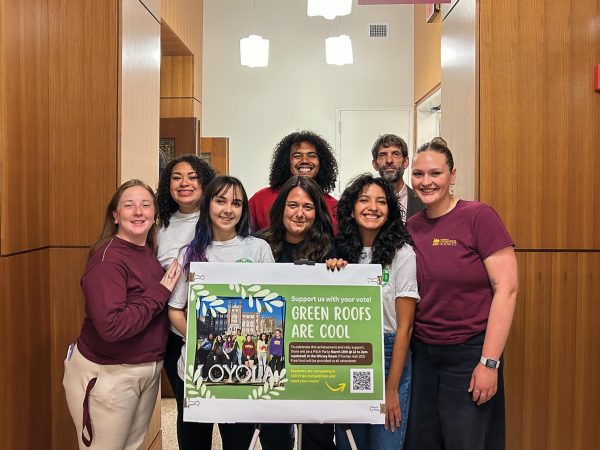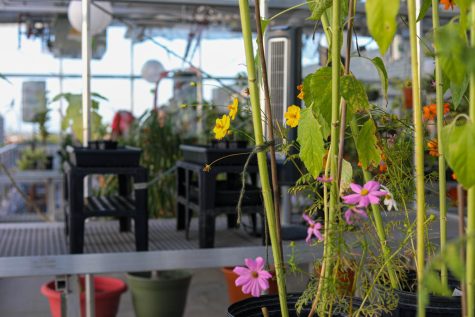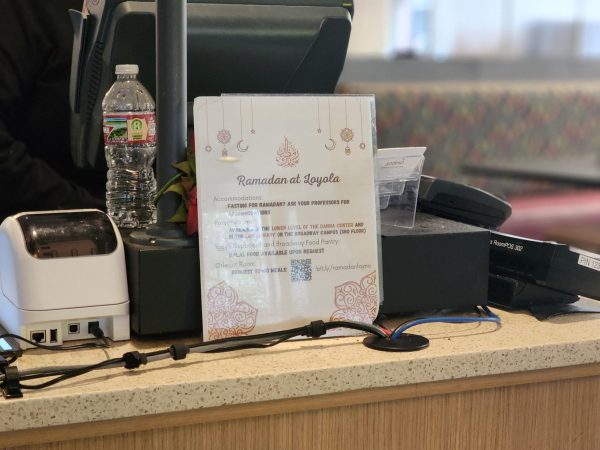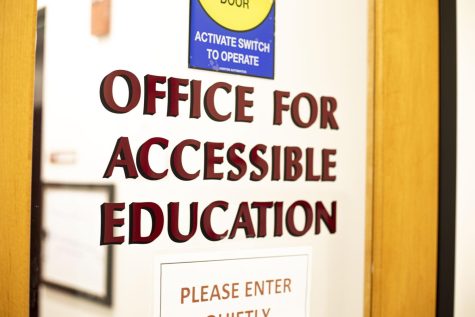Honors Program looks to the future after troubled three years
University Honors Association President Ariel Hall listens during the organization’s first board meeting on Jan. 13. Hall said she was hopeful the program was back on the right track after some troubled years.
January 18, 2020
After two years of instability, those involved in Loyola’s Honors program believe growth and progress are in the near future.
Students and administration are both hoping Jonathan Peterson, philosophy professor and the newly announced Honors director will successfully steer the program toward smoother waters.
As the university cautiously enters a new normal of balanced budgets and permanent administrators, departments, organizations and programs, like Honors, are beginning to adjust after a set of challenging years.
But the program has dealt with its share of struggles and prevailed — Loyola Honors will celebrate its 40th anniversary this year, and those involved are optimistic about its future.
The honors program, celebrating its 40th anniversary this year, got its start in 1980 as the Presidential Scholars program, started by president Rev. James C. Carter, S.J., Naomi Yavneh Klos, former honors Program director, said.
Troubled Times
Many pinpoint the departure of director Yavneh Klos in the summer of 2018 as the first public sign that problems were arising.
As financial mishaps began to pile up while the university struggled with retention, every program on campus, including honors, began to feel increased pressure.
Faculty and staff found themselves doing more work with less pay, as pennies were pinched and positions were cut. Yavneh Klos lost her administrative assistant while simultaneously advising 300 honors students and working an average of 80 hours a week.
“I was really tired because of the financial challenges of the last semester I was here,” Yavneh Klos said. “I felt like things were not going to change that way.”
Things reached a head when the interim provost at the time, David Borofsky began instating strict budgetary cuts to programs.
“He was just really focused on the bottom line, and we had disagreements of how best to serve the students.” Yavneh Klos said.
Borofsky abruptly left in the spring of 2018, and he was replaced by Maria Calzada as interim provost and by Paul Pastorek as chief operating officer.
Later that semester, at a faculty town hall, Yavneh Klos learned that she would no longer be reporting to the provost, but instead to the Dean of Arts and Sciences. Additionally, she learned that advising would be moved out of honors, something with which she fervently disagreed.
“You want to be sure that you’re able to represent the interests and understand what’s happening throughout the university,” Yavneh Klos said. “I really felt like it wasn’t what I wanted to do anymore. That for me was compromising beyond what I wanted to do.”
In July 2017, Yavneh Klos told Interim Provost Maria Calzada she would be leaving the position and taking a sabbatical.
What Comes Next?
With only a few months of being interim provost under her belt, Calzada immediately moved to find an interim replacement to direct the honors program.
“Dr. Yavneh was a much beloved director,” Calzada said. “Her departure would be significantly felt.”
Calzada said she approached Berendzen about the job and he accepted the challenge.
Berendzen said he always regarded the position as temporary but took the job because he felt he could help the university.
“I was starting my 15th year at Loyola, and it was a good time to do something different for a change,” Berendzen said.
As this transition of power happened, the student leadership within the University Honors Association began to crumble, and there were long stages of inactivity, University Honors Association president Ariel Hall said.
“The president of UHA left halfway through the year without telling us and so we were left without a president,” Hall said.
Hall, who had been in the program since her freshman year, was disappointed that other students weren’t having the same positive experience she’d originally had.
“It got to be really stagnant. There weren’t as many events,” Hall said. “We started to be really inactive and people really began to forget honors.”
Despite initial communication problems with their new director, Hall said Berendzen eventually flourished as interim director by clarifying program requirements, tightening up the thesis requirements and stabilizing communication channels.
Berendzen declined to discuss any challenges or successes he faced while serving as director.
“Dr. Berendzen did so much for our program,” Hall said. “I would say in 2019, that is when he really flourished as interim director.”
Calzada, too, championed Berendzen’s tenure during a difficult time.
Still, Hall said there was a looming knowledge that Berendzen was an interim director, and students were eager for stability.
In the summer of 2019, Berendzen alerted Calzada that he would not be seeking the permanent position, and the search for a new director began in the fall.
Looking Forward
As the program searched for a permanent leader to replace Berendzen, Peterson said he saw an opportunity to surround himself with exciting and imaginative students while also helping build and better the program.
Calzada said a university search committee comprised of the vice provost, a dean and an honors student, reviewed all applications and recommended finalists for further interviews.
Hall said honors students were immediately impressed by Peterson’s seeming balance as a strong academic leader and his approachable quality.
“(Peterson is) kind of the best of both Dr. Berendzen and Dr. Yavneh, which is something we were really looking for,” Hall said.
The committee then provided Calzada with their feedback in order for her to make the final decision.
“It was a difficult choice as we had very good candidates,” she said. “Dr. Peterson had a particular vision for the program that I found very exciting.”
That vision is a four-step plan:
1. Recruit and retain high caliber students that positively impact the whole university
2. Make the program reflect the diversity of Loyola
3. Emphasize all Jesuit values
4. Improve the cultural engagement and service aspects of the program
Peterson said he was well aware of the frustrations students have had with leadership continuity and the lack of course offerings. He said he is eager to start addressing those issues with student input.
“I’m going to do my best to increase the course offerings, and I’m going to be working closely with chairs and deans to try and ensure that we can offer a really rich set of seminars,” Peterson said.
Addressing leadership continuity, he said he hopes to be in the position for a long time.
“I am optimistic that things are going to become a bit more stable now with most of the new administration in place,” he said. “I think we’re probably entering a time of a bit more stability, I hope.
In her final semester as an honors student, Hall said her experience has been a tumultuous one, filled with hardships and successes, but she believes those successes are now here to stay.
“Oftentimes, it felt as though the rest of Loyola forgot about us,” she said. “This was definitely a challenging time, but I think [honors] will come out very strong in the end.”


